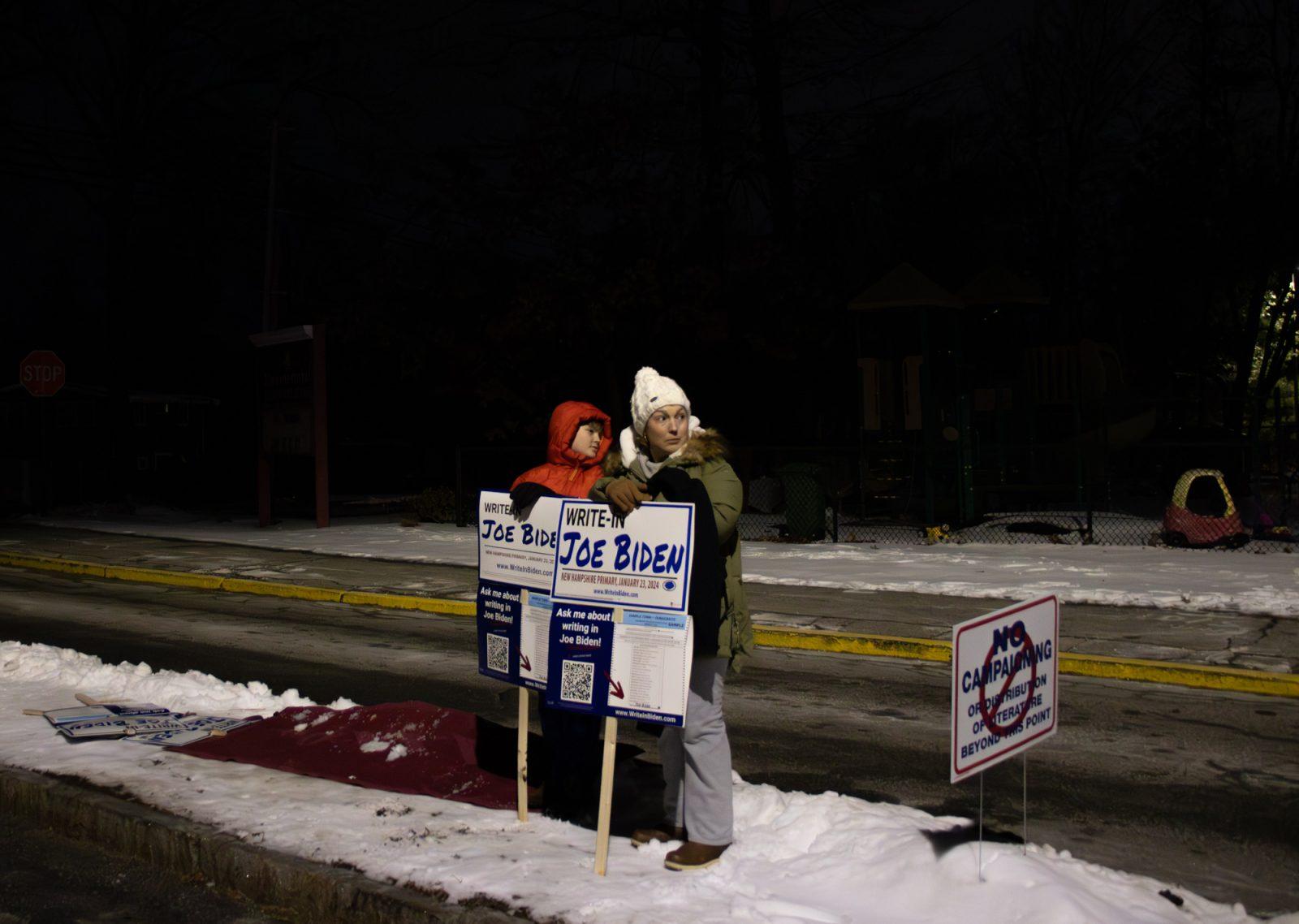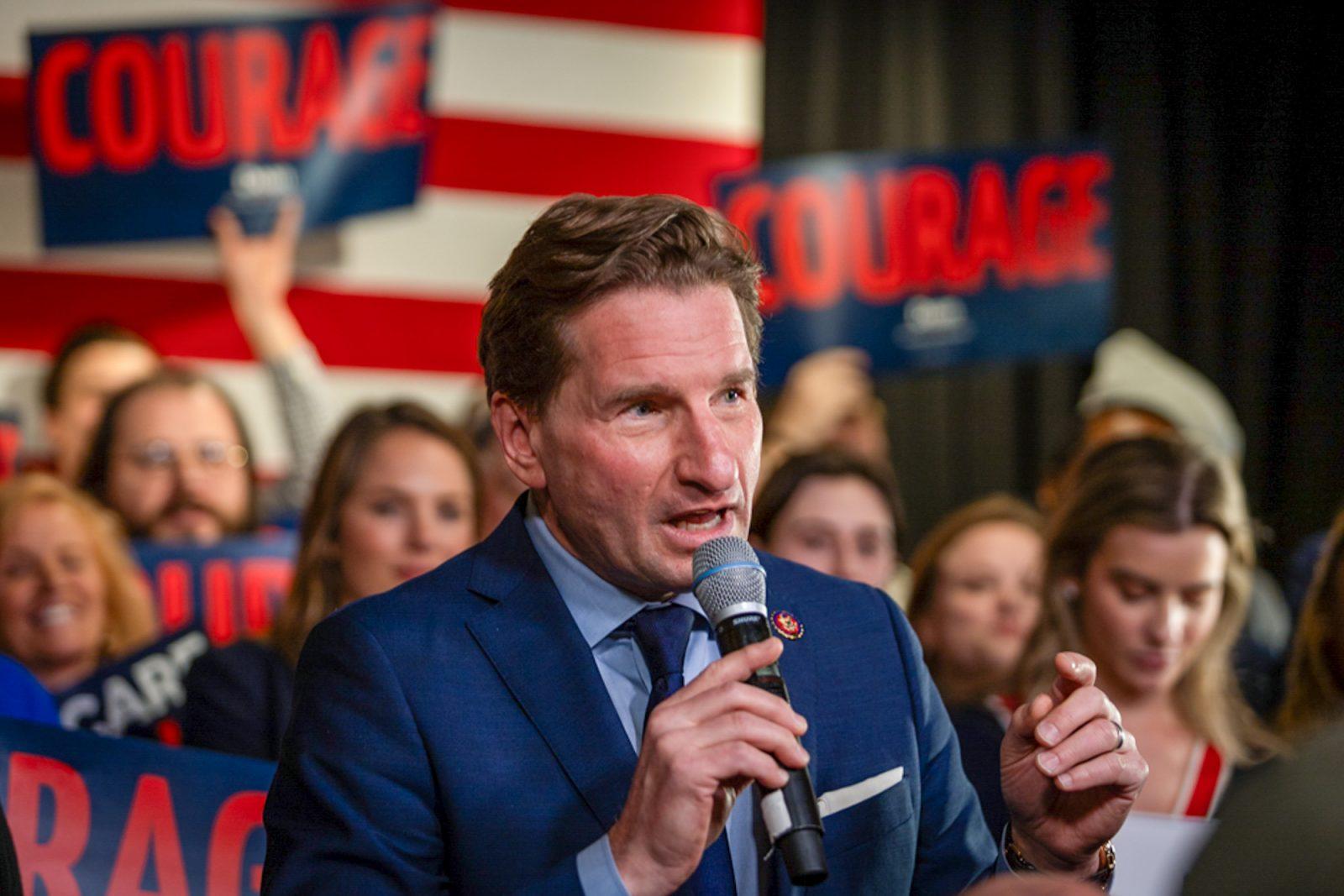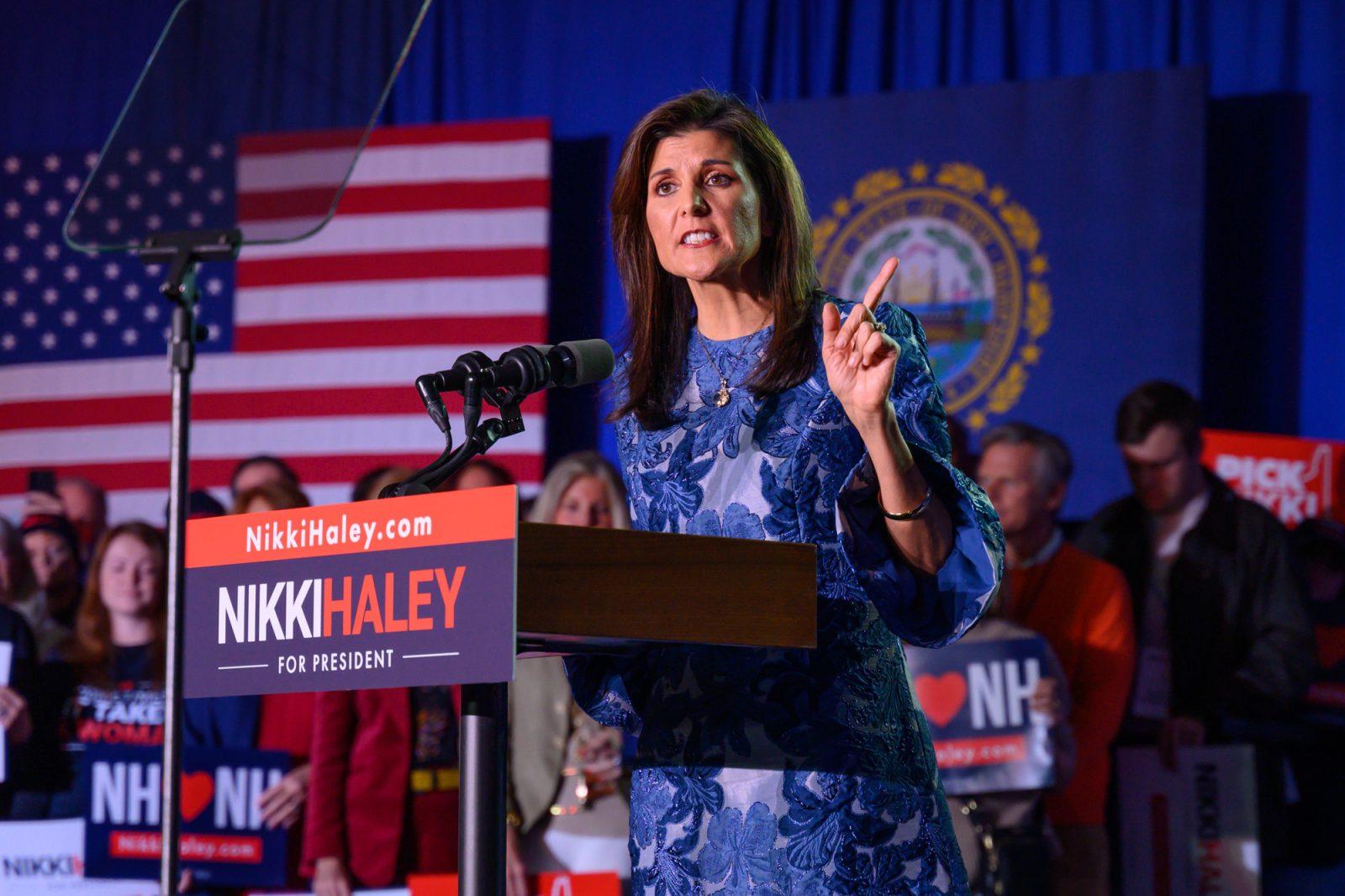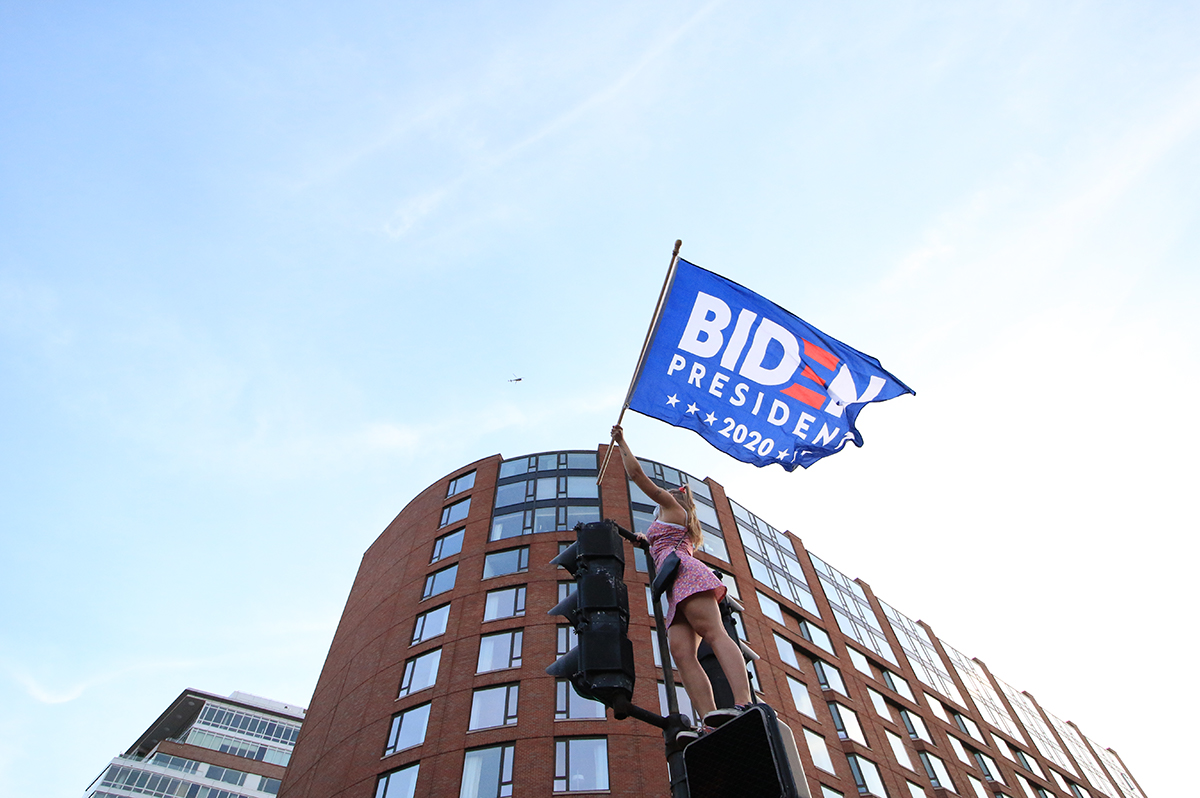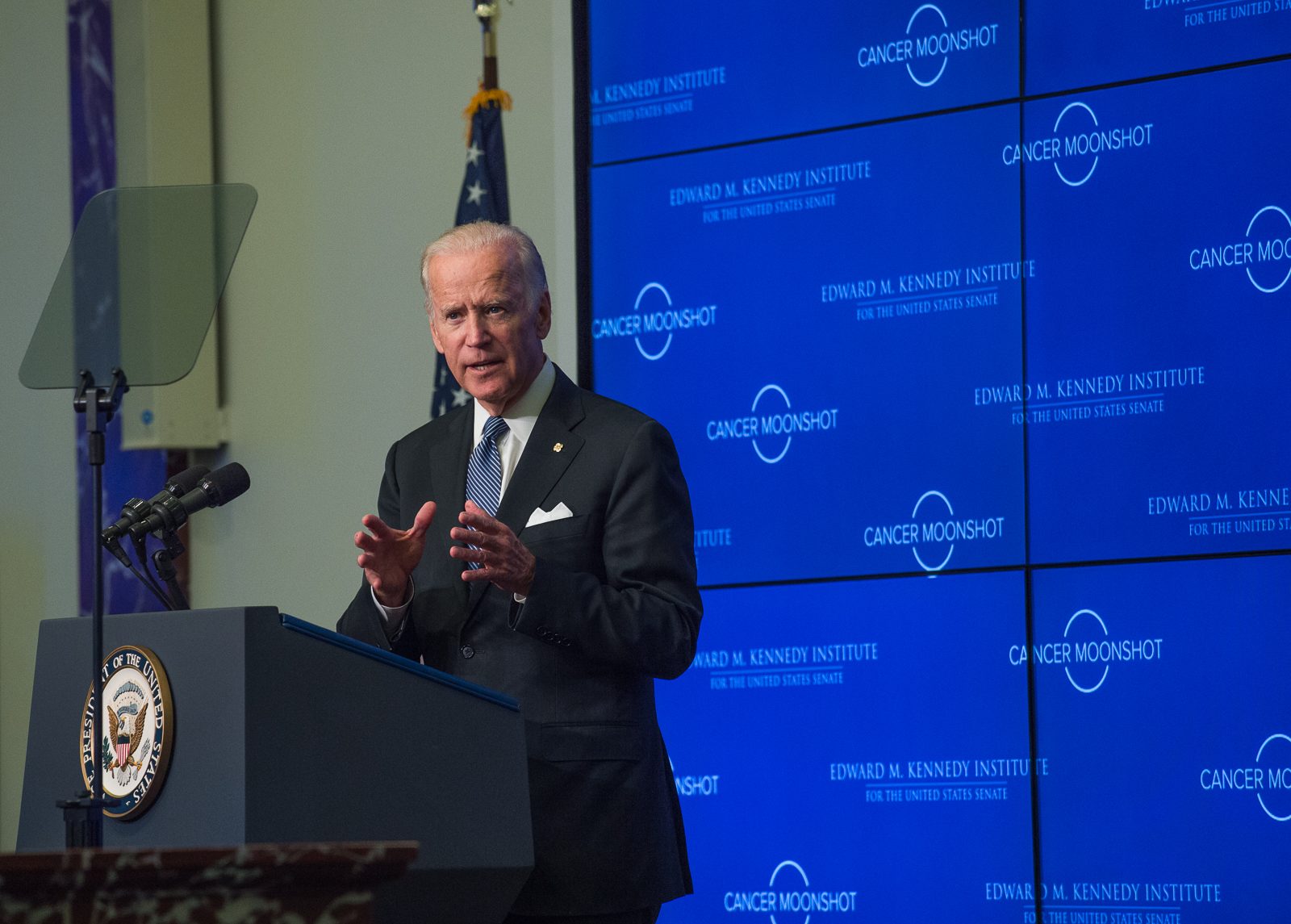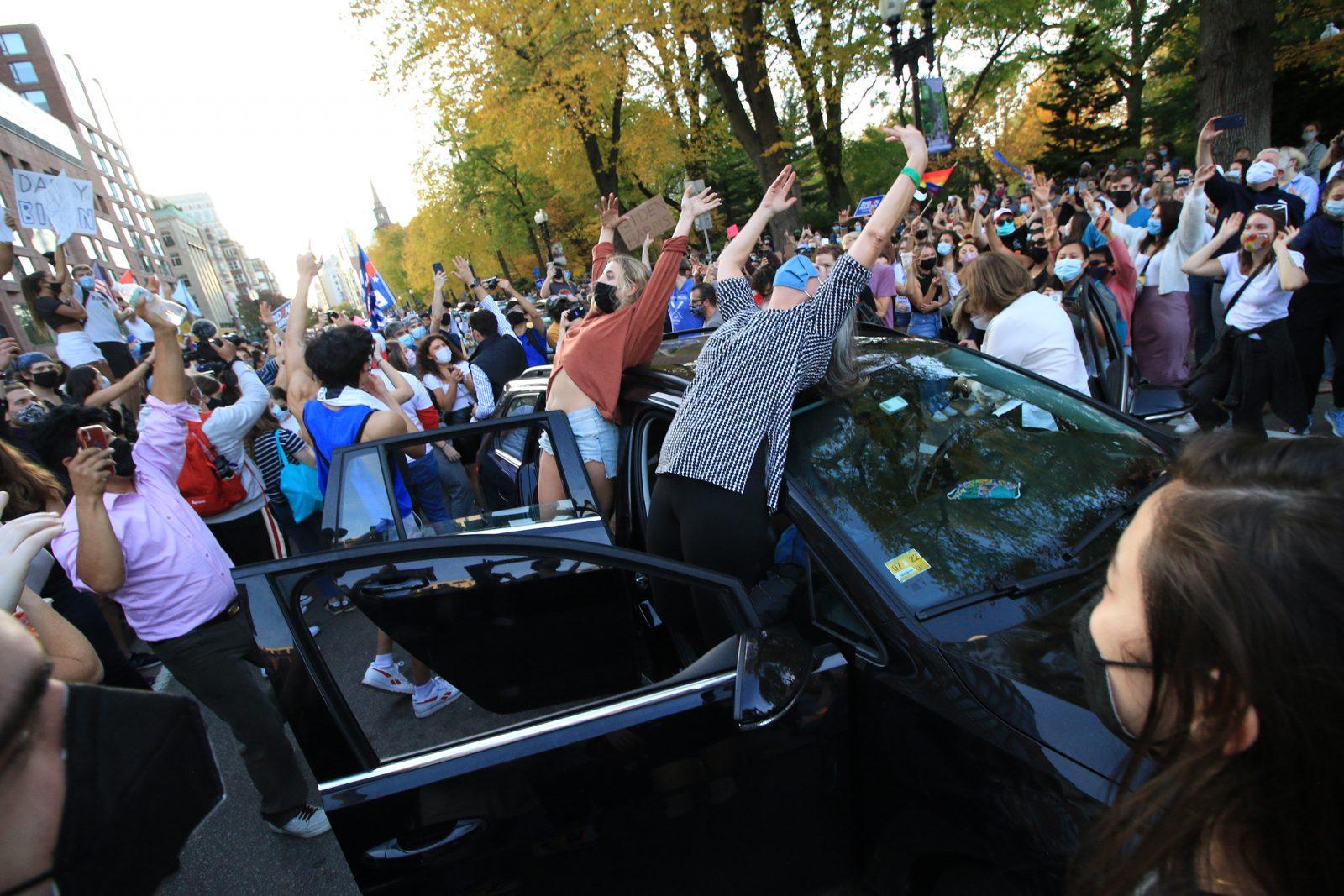One of the largest ever Democratic fields in a presidential primary election has saturated the 2020 candidate pool with blue. But also vying to win the White House this year are a handful of even more progressive contenders who often go unnoticed — they’re running under the Green Party.
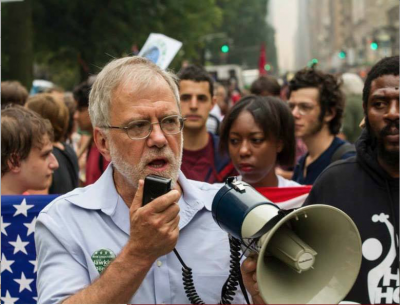
Four of these candidates were on the ballot in Massachusetts for Super Tuesday. Though they run under different party names depending on state, such as Green-Rainbow in the Commonwealth, all are affiliated with the national Green Party.
On Tuesday, the party had ballot access in three of the 14 states that held primaries: Massachusetts, California and North Carolina. Still, its candidates had the chance to pick up more delegates on this day than any other in the 2020 primary season.
The Green platform espouses environmentalist ideals, as its name implies, as well as social justice and grassroots democracy. Democrats are not doing enough, Greens say, and many are corrupted by corporate funding.
Howie Hawkins is one name that appeared on ballots Tuesday. He was one of 62 co-founders of the first national Green organization in 1984.
Having supported various third parties since before he was of eligible voting age, Hawkins said one consequential challenge that comes with running under a lesser-known party is ballot access.
“The difficulty getting on the ballot in this country is more difficult than almost any other electoral democracy in the world,” Hawkins said. “And I would say that party suppression is part of voter suppression.”
Many citizens refuse to cast their ballot on Election Day because neither of the two major parties speak to their needs, Hawkins said, yet alternative candidates who might are often not offered as choices.
“So a lot of people that really support us vote Democrat to stop the Republicans,” Hawkins said. “That’s why one of our major issues is electoral reforms, like … a national popular ranked-choice vote so people can vote for what they want without fear of their worst enemy.”
A common critique of third parties and independents alike is that they pull crucial votes away from the major party their supporters most identify with. However, Hawkins said, third parties have historically driven tangible change as well.
“A lot of people say we’re spoiling the election,” Hawkins said. “I would argue we’re improving the election, because we’re bringing issues to the fore and putting on the table things that the major parties will not.”
From the Liberty Party challenging slavery in the 19th century to the Socialist Party advocating for the social insurance programs ultimately packaged into the New Deal in the 20th century, Hawkins said third parties have not had to win office to make a difference in U.S. policy.
Hawkins announced his presidential bid in May last year after a buildup of public support from Greens across the country. He said he never considered entering politics as a Democrat or Republican because neither party takes enough action on racial injustice.
“The exclusion of African Americans, Mexican Americans, Asian Americans, Pacific Islanders, those are race-conscious injuries that require race-conscious remedies,” Hawkins said. “Things like affirmative action and targeted investments in communities that have been oppressed and are poor. And neither party has done that in any serious way.”
Another grievance Hawkins has with both parties is their apparent failure to combat police brutality on young Black and Latino men.
“The rate of police killings has not declined at all, even though the crime rate has been declining steadily for three decades,” Hawkins said. “So I don’t think either party’s dealing with the question of racism adequately.”
Meanwhile, Green Party candidate Dario Hunter once gave the Democratic Party a chance — he is a former member. But while engaging in local politics for years in Youngstown, Ohio, he gradually reached the conclusion that Democrats, who dominated the municipality, would not move forward on social justice.
“The local Democratic Party wasn’t interested in doing that. They were interested in their corporate owners and pursuing their needs,” Hunter said. “And so, issues like a state takeover [of failing schools], children stuck in a cycle of failure, they were not responding to those issues.”
Hunter said he aims to confront school-to-prison pipelines feeding children into the mass incarceration system, as well as end redlining and police brutality.
“Our campaign focuses on what we call the People of Color Bill of Rights,” Hunter said, “which is a comprehensive platform to deal with the gap between the rights that it is said all Americans have on paper and what the actual experience is.”
But his central campaign issue is climate change. Hunter said he seeks solutions that extend past the policies proposed in the Green New Deal.
“You are not going to save this planet by focusing solely on what we do within our borders,” Hunter said. “So we have what we call the Green Path Forward, which is a realignment of our relationship with other countries.”
America must build better relations with other chief carbon emitters such as China, Hunter said, to fully address a global climate catastrophe.
“We also focus on other major environmental crises because climate change is not the only one,” Hunter said. “We have plastics showing up in the deepest of ocean trenches so plastic pollution and associated global bans on that, that’s a big part of our unique environmental focus as a campaign.”
Peace is another pillar of the Green Party platform. While all the 2020 Green contenders advocate for peace, Hunter said his campaign is the only one pushing for a federal department to enforce it.
“Instead of just cutting the military budget, we are then going to reallocate that amount to creating a Department of Peace,” Hunter said. “We do have a State Department to deal with diplomacy, but this is so much more than that. Peace-building means global community-building and that’s what our Department of Peace would do.”
Green candidate Kent Mesplay, who wrote in an email he has run in every U.S. presidential election since 2000, also has plans to reallocate the war budget.
“We need to gracefully shift military spending into actual protection (rebuilding our infrastructure and creating a system where people don’t really need jobs as we think of them today),” Mesplay wrote, “instead of wars for empire expansion passed off to an unsuspecting, non-critical-thinking citizenry.”
Mesplay wrote that he first looked into the Green Party in 1995, and was immediately drawn in by its environmentalist vision.
“I grew up in a tropical rain-forest, so I see things a little differently than the average bear,” Mesplay wrote. “Climate Change really is the World War III of our time, and our ‘leaders’ are asleep at the wheel. Time to grab the wheel.”
Mesplay then announced his first candidacy that same year, before he was officially old enough to run. He wrote that polling numbers do show potential for a Green win, but people remain reluctant to peel votes away from the main parties because they don’t believe a third-party candidate could come out on top.
“Would we be accused of taking away non-votes, too?” Mesplay wrote. “This works best when the candidate believes in winning, not just showing up to build the party incrementally.”
Mesplay wrote he believes the U.S. needs a “viable” third party that can rally national support — and other candidates agree.
Hunter said the Green effort will extend past 2020, and he will continue to travel the country to help lift local would-be Green leaders.
“I strongly believe that like in my community, when people see Green communities, when they see what we represent and how different it is, they will see this as a viable option and we can break through the current duopoly in power today,” Hunter said. “But we’ve some footwork to go. I’m excited about it.”


















































































































